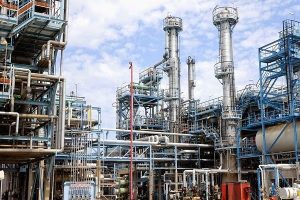
The Port Harcourt Refinery, one of Nigeria’s most significant oil processing facilities, is back in operation after extensive rehabilitation and upgrades. Officials confirmed that the refinery, which had undergone years of inactivity, is now operational and evacuating refined petroleum products daily.
Refinery Operations Back on Track
During a recent tour of the facility in Eleme, Rivers State, Managing Director of the Port Harcourt Refining Company Limited (PHRC), Ibrahim Onoja, addressed rumors that production had halted after the refinery’s inauguration. Onoja dismissed the allegations, emphasizing that the refinery is operational and products such as Premium Motor Spirit (PMS), kerosene, and diesel are being loaded onto trucks daily.
“We are trucking out our products, and operations have resumed fully,” Onoja stated. He added that the facility had undergone significant upgrades, including replacing key equipment, pumps, and cables, to enhance efficiency and reliability.
Efficient Loading Process in Action
The Terminal Manager, Molokwuu Joel, highlighted the refinery’s high efficiency, explaining that its 11 functional loading bays can evacuate up to three trucks per bay every 15 minutes. However, only three bays are currently being used due to the number of available trucks.
“We have surplus products and can handle up to 100 trucks in under five hours. The challenge lies with tanker drivers, not the refinery’s capacity,” Joel noted.
The Director of Operations at the Nigeria Pipeline Storage Company Limited, Moyi Maidunama, confirmed that while operations were briefly scaled down to address technical improvements, the refinery never fully halted production. “We have been evacuating refined products since yesterday, and this process will continue,” he assured.
Upgrades and Rehabilitation
The Port Harcourt refinery, which includes two units with a combined refining capacity of 210,000 barrels per day, had been largely dormant for over two decades. In 2019, the refinery was shut down for the first phase of its $1.5 billion rehabilitation, led by Italy’s Maire Tecnimont and technical advisor Eni.
The rehabilitation project, approved by the Federal Executive Council, aimed to restore the facility to optimal performance. On December 21, 2023, the Nigerian government announced the mechanical completion and flare start-off, signaling the refinery’s readiness for operations.
Community and Industry Confidence
Community leaders and industry experts have expressed optimism about the refinery’s return to operations. Alesa Eleme’s Chief Security Officer, Dibia Isaiah, dismissed negative rumors about the facility, emphasizing that production is ongoing.

“The refinery is producing intermediate products like LPG, naphtha, kerosene, and gas oil, which are being stored and blended for public consumption, including PMS,” Ogbuigwe explained.
Economic Implications and Challenges
The revival of the Port Harcourt refinery is expected to bolster Nigeria’s domestic fuel supply and reduce dependency on imported refined products. However, logistical issues, such as the slow turnout of tanker drivers, remain a challenge.
Looking ahead, stakeholders are eager for the catalytic reforming unit to become operational, which will enable full optimization of crude oil processing and potentially stabilize fuel prices.
The Port Harcourt refinery’s successful rehabilitation represents a significant milestone in Nigeria’s efforts to revitalize its oil refining capacity, offering hope for greater energy independence and economic stability.

